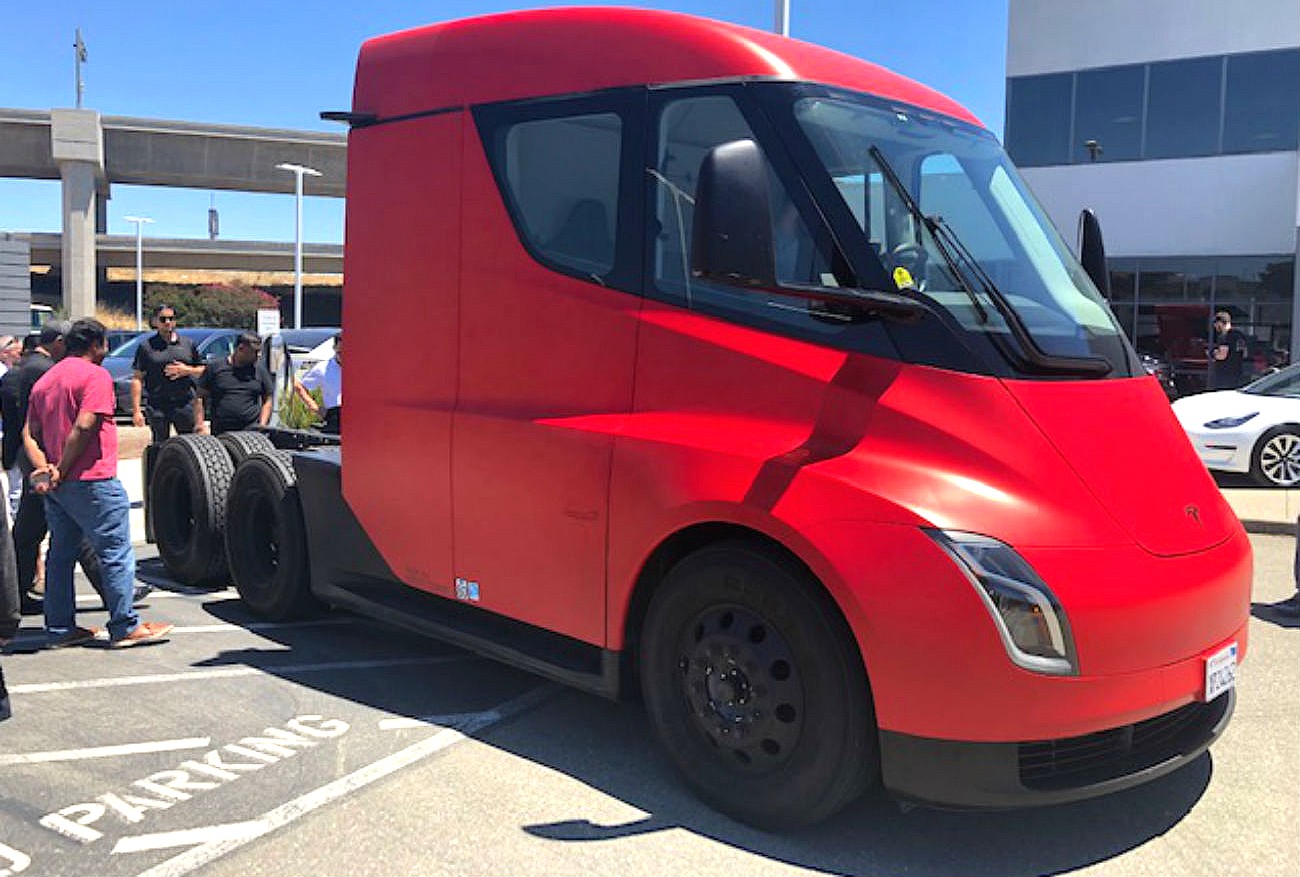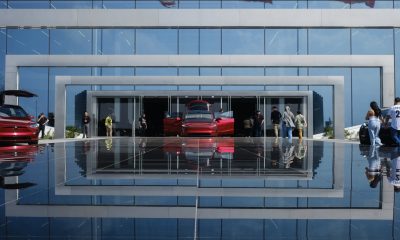

News
Tesla’s nickel future will benefit the company and the consumer
It is no secret that batteries play a massive role in Tesla’s future. Not only do the materials that are mined for the company’s electric cars need to be sustainably sourced, but they need to fit the company’s long and short-term goals.
For a long time, the talk about electric vehicle batteries has been focused on cobalt. The chemical element is controversial for several reasons: it is expensive, it is mined in immoral ways in many countries, and it is not great for the environment. However, companies can choose to source it responsibly, and Tesla has maintained that its cobalt sources are moral and proper in their obtaining of the element.
But during yesterday’s Q2 2020 Earnings Call with Tesla executives, cobalt was not mentioned even once. The focus stood on nickel and the benefits it could play for future company projects, which are based on the foundation that batteries need to be long-lasting and energy-dense. This fact is especially prevalent when it comes to the company’s commercial Semi truck, which will be responsible for transitioning the considerable commerce and trucking industry to function more sustainably.
“Please mine more nickel,” CEO Elon Musk pleaded to mining companies. “Tesla will give you a giant contract for a long period of time if you mine nickel efficiently and in an environmentally sensitive way.”
Nickel is included in the current EV batteries that Tesla uses. A Nickel-Cobalt-Aluminum battery has been produced at Giga Nevada, but the company continues to submit patents that could revolutionize the way its batteries function. Ultimately, the goal is to have million-mile capable cells that will not only translate to a longer lifespan for an electric car but also an extended time of use for Tesla energy storage products.
Musk was adamant during yesterday’s call that Nickel mining is crucial to the company’s fleet of future vehicles. Why? Because Nickel-based battery cells can handle what the Tesla Semi will require to function, which is high energy density. This will ultimately translate to an extended range.
The Semi will be responsible for hauling massive amounts of cargo across the country. It will have to scale steep grades and handle different weather scenarios in every area it travels in. All of these factors will inevitably affect the Semi’s range, and the way to combat that is to come up with more energy-dense cells that are capable of handling a multitude of situations.
“Obviously, those are needed for something like Semi, where every, every unit of mass that you add in a battery pack, you have to subtract in cargo,” Musk said. “So it’s very important to have a mass efficient and long-range pack for four batteries.”
But Tesla’s nickel operation goes far past the company’s Semi plans. It also translates to be beneficial for passenger vehicles that are aimed toward mass-market production, like the Model 3 and Model Y.
After Tesla scrapped plans for the Standard Range RWD Model Y earlier this month, Musk indicated that the new normal for EVs should be 300 miles of range. The Standard Range Y wouldn’t fit that description, as the CEO said it would be capable of less than 250 miles. In Tesla terms, that is unacceptable.
A question during yesterday’s call suggested that Tesla could be shifting from smaller-pack vehicles to larger ones, but that doesn’t seem to be the case. The real struggle is creating effective electric transport across the entire market, instead of for one type of vehicle.
Range is a substantial part of driving an electric vehicle, regardless of who made the car. The focus for Tesla is increasing range and longevity for the company and the consumer. Across each of its cars, the range is of utmost importance, and it begins with nickel mining.
News
Tesla sales soar in Norway with new Model Y leading the charge
Tesla recorded a 54% year-over-year jump in new vehicle registrations in June.

Tesla is seeing strong momentum in Norway, with sales of the new Model Y helping the company maintain dominance in one of the world’s most electric vehicle-friendly markets.
Model Y upgrades and consumer preferences
According to the Norwegian Road Federation (OFV), Tesla recorded a 54% year-over-year jump in new vehicle registrations in June. The Model Y led the charge, posting a 115% increase compared to the same period last year. Tesla Norway’s growth was even more notable in May, with sales surging a whopping 213%, as noted in a CNBC report.
Christina Bu, secretary general of the Norwegian EV Association (NEVA), stated that Tesla’s strong market performance was partly due to the updated Model Y, which is really just a good car, period.
“I think it just has to do with the fact that they deliver a car which has quite a lot of value for money and is what Norwegians need. What Norwegians need, a large luggage space, all wheel drive, and a tow hitch, high ground clearance as well. In addition, quite good digital solutions which people have gotten used to, and also a charging network,” she said.
Tesla in Europe
Tesla’s success in Norway is supported by long-standing government incentives for EV adoption, including exemptions from VAT, road toll discounts, and access to bus lanes. Public and home charging infrastructure is also widely available, making the EV ownership experience in the country very convenient.
Tesla’s performance in Europe is still a mixed bag, with markets like Germany and France still seeing declines in recent months. In areas such as Norway, Spain, and Portugal, however, Tesla’s new car registrations are rising. Spain’s sales rose 61% and Portugal’s sales rose 7% last month. This suggests that regional demand may be stabilizing or rebounding in pockets of Europe.
News
Tesla to open first India experience center in Mumbai on July 15
The event is scheduled for July 15 at the Bandra Kurla Complex, a premier business district in Mumbai.

Tesla is officially entering India with the opening of its first showroom and experience center in Mumbai next week. The event is scheduled for July 15 at the Bandra Kurla Complex, a premier business district in Mumbai.
Tesla imports to India signal an early-stage market entry strategy
According to Indian customs data, Tesla has imported approximately $1 million worth of vehicles, charging equipment, and merchandise into the country between January and June. The shipments include six Model Y comprised of five standard variants valued at $32,500 each and one long-range model valued at $46,000. Several Superchargers and related accessories were also imported into the country, as noted in a Yahoo Finance report.
These vehicles are expected to serve as display models and test units as Tesla gauges interest and navigates India’s high import duties, which hover around 70% on fully built vehicles. Despite the significant tariffs in the country, Tesla has opted to begin its India expansion with imported cars.
An invitation to the Tesla India launch event has been making the rounds online. As could be seen in the document, Tesla noted that July 15 would be the launch of Tesla in India through the opening of a Tesla experience centre at Bandra Kurla Complex in Mumbai.
Tesla India’s hiring and expansion efforts are underway
Tesla has filled a number of key roles from the 30+ positions it advertised earlier this year. Recent hires include store managers, service executives, and sales staff, while ongoing recruitment is focused on supply chain engineers and vehicle operators to support the company’s Autopilot program.
Indian officials have been open about their intention to encourage Tesla to establish a manufacturing hub in the country. Tesla does seem open to the idea, at least, with reports last year hinting that Elon Musk was set to visit the country to discuss or even potentially announce a domestic project. The trip, however, was ultimately canceled.
News
Tesla begins Robotaxi certification push in Arizona: report
Tesla seems serious about expanding its Robotaxi service to several states in the coming months.

Tesla has initiated discussions with Arizona transportation regulators to certify its driverless Robotaxi service in the state, as per a recent report from Bloomberg News. The move follows Tesla’s launch of its Robotaxi pilot program in Austin, Texas, as well as CEO Elon Musk’s recent comments about the service’s expansion in the Bay Area.
The Arizona Department of Transportation confirmed to Bloomberg that Tesla has reached out to begin the certification process for autonomous ride-sharing operations in the state. While details remain limited, the outreach suggests that Tesla is serious about expanding its driverless Robotaxi service to several territories in the coming months.
The Arizona development comes as Tesla prepares to expand its service area in Austin this weekend, as per CEO Elon Musk in a post on X. Musk also stated that Tesla is targeting the San Francisco Bay Area as its next major market, with a potential launch “in a month or two,” pending regulatory approvals.
Tesla first launched its autonomous ride-hailing program on June 22 in Austin with a small fleet of Model Y vehicles, accompanied by a Tesla employee in the passenger seat to monitor safety. While still classified as a test, Musk has said the program will expand to about 1,000 vehicles in the coming months. Tesla will later upgrade its Robotaxi fleet with the Cyercab, a two-seater that is designed without a steering wheel.
Sightings of Cybercab castings around the Giga Texas complex suggests that Tesla may be ramping the initial trial production of the self-driving two-seater. Tesla, for its part, has noted in the past that volume production of the Cybercab is expected to start sometime next year.
In California, Tesla has already applied for a transportation charter-party carrier permit from the state’s Public Utilities Commission. The company is reportedly taking a phased approach to operating in California, with the Robotaxi service starting with pre-arranged rides for employees in vehicles with safety drivers.
-

 Elon Musk2 weeks ago
Elon Musk2 weeks agoTesla investors will be shocked by Jim Cramer’s latest assessment
-

 Elon Musk1 day ago
Elon Musk1 day agoxAI launches Grok 4 with new $300/month SuperGrok Heavy subscription
-

 Elon Musk3 days ago
Elon Musk3 days agoElon Musk confirms Grok 4 launch on July 9 with livestream event
-

 News1 week ago
News1 week agoTesla Model 3 ranks as the safest new car in Europe for 2025, per Euro NCAP tests
-

 Elon Musk2 weeks ago
Elon Musk2 weeks agoA Tesla just delivered itself to a customer autonomously, Elon Musk confirms
-

 Elon Musk1 week ago
Elon Musk1 week agoxAI’s Memphis data center receives air permit despite community criticism
-

 News2 weeks ago
News2 weeks agoXiaomi CEO congratulates Tesla on first FSD delivery: “We have to continue learning!”
-

 Elon Musk2 weeks ago
Elon Musk2 weeks agoTesla still has two major milestones on track before end of Q2
















